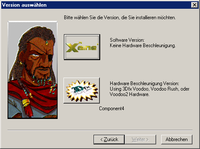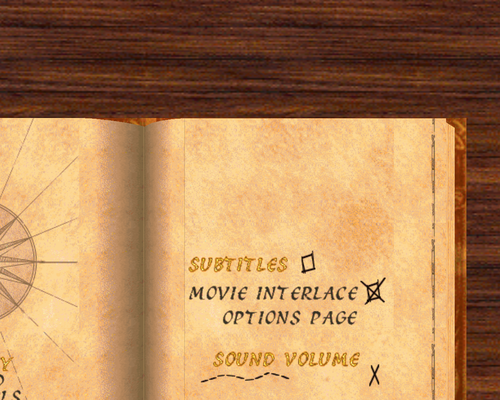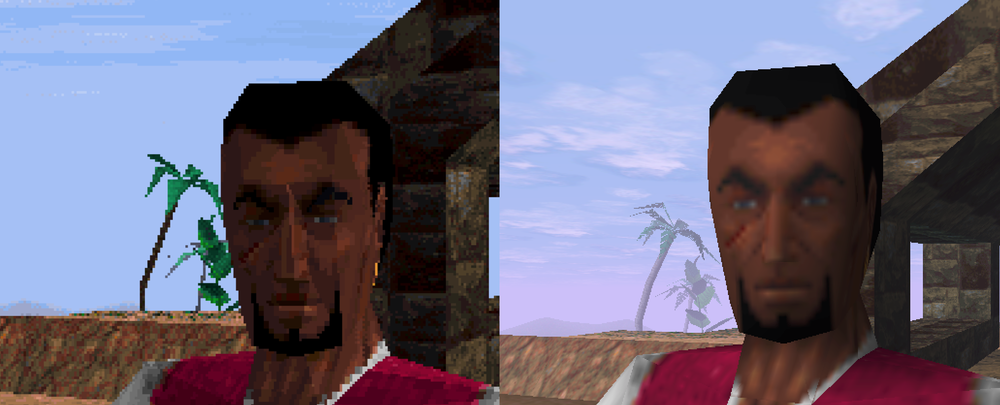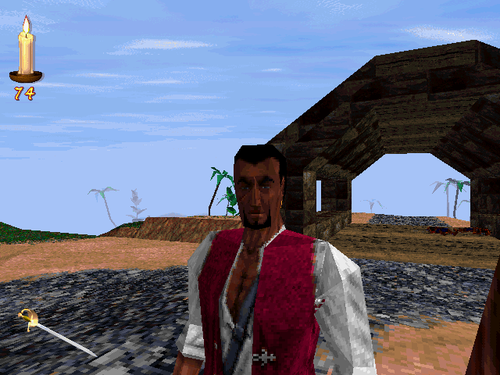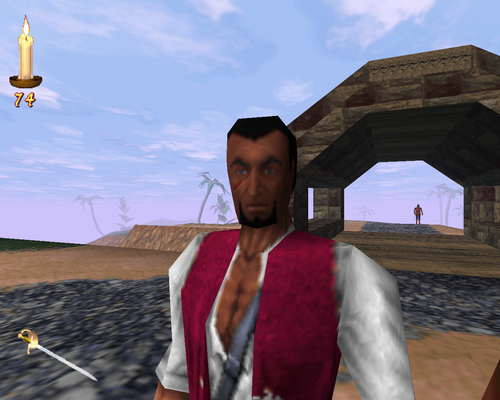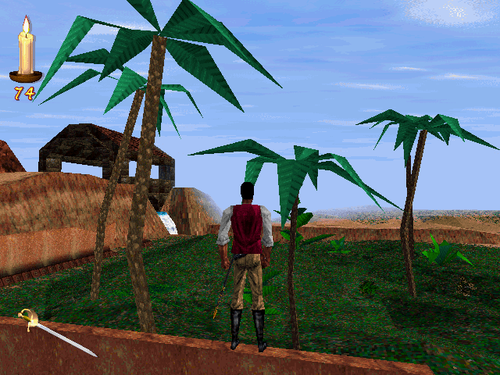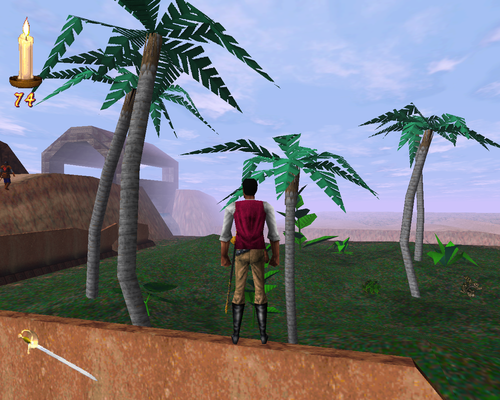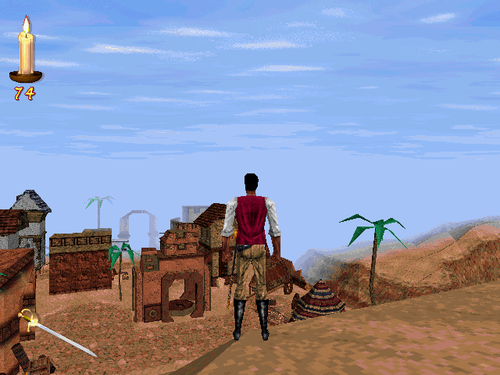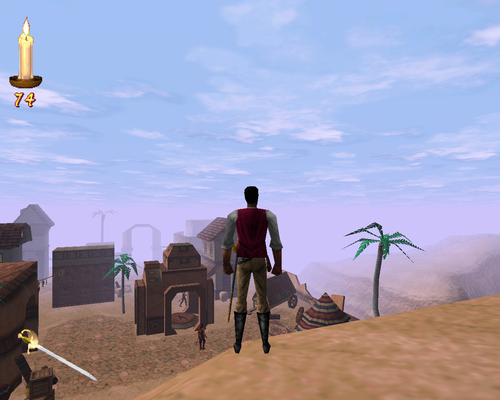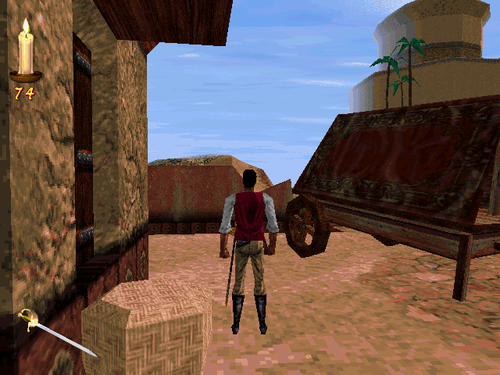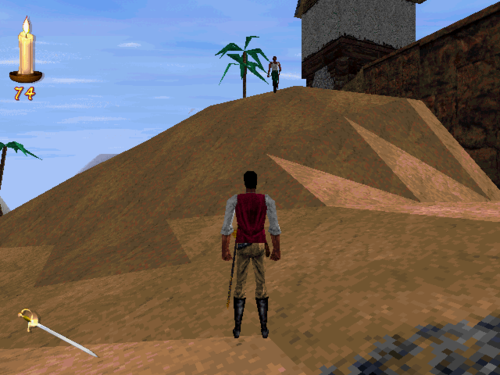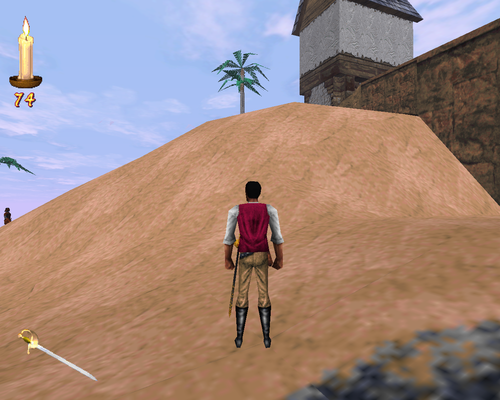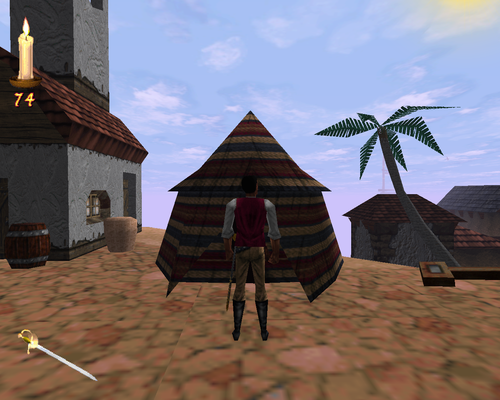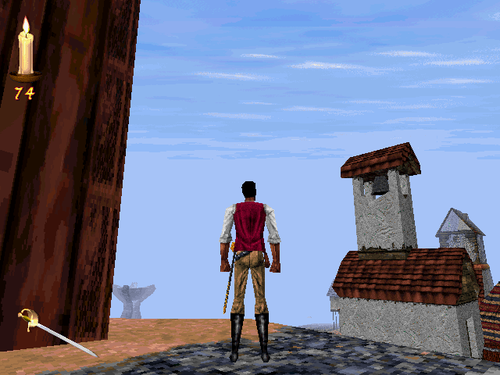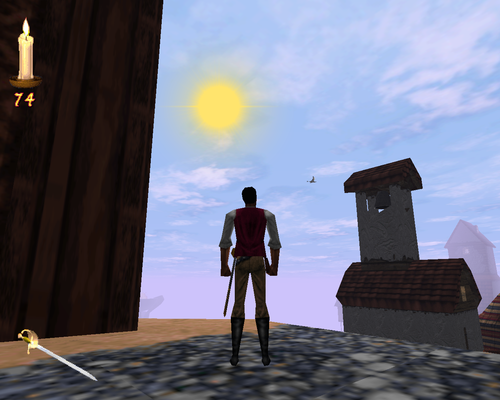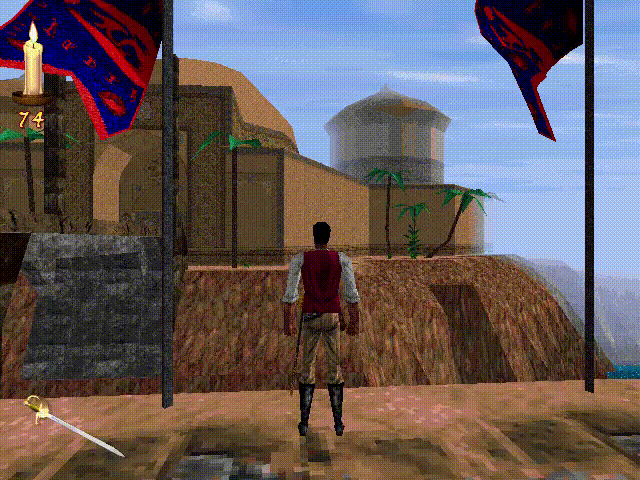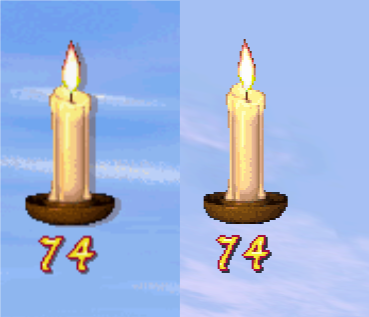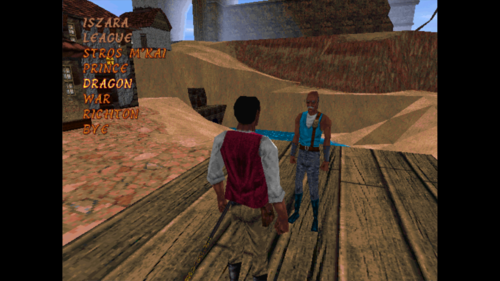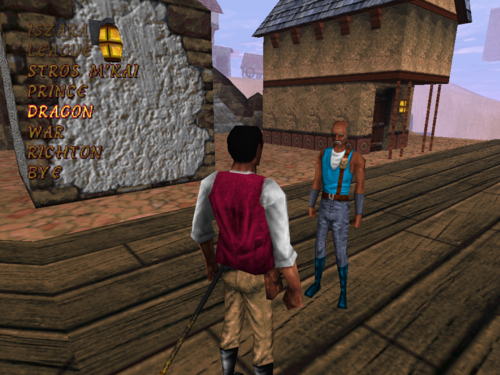Redguard:Glide Differences
Redguard and Glide Acceleration[edit]
Redguard shipped with two different "versions": One with a regular software renderer and one with Glide 3D acceleration through supported 3DFX cards or a Glide wrapper. If you install the game from the original disk, you can choose whether to install the software or Glide rendered version of the game during the setup.
If you downloaded Redguard from the internet, you only have one of the two, and which one, depends on where you purchased/downloaded the game from:
- Steam: Software version
- Microsoft Store (GamePass): Software version
- GOG: Glide version
- The free Redguard demo: Glide version
While you could think that it's the same game with just a different graphics API enabled (like many modern games do it), the two installations are not identical.
In comparison to the software version, the Glide installation has these differences in the file/folder structure:
- The /3dart folder is replaced with /fxart (for more detailled info about the differences within those folders see here)
- New files were added: RGFX.EXE, 3DfxSpl2.dll, glide2x.dll
You could also add the missing files to any existing installation, and create a "super installation" that can run both versions of the game (by starting either RG.exe or RGFX.exe). Be aware, that the savefiles between the two are not compatible with each other.
This still leaves the question: what are the actual in-game differences?
The main selling point of the Glide version, was that it offered support for higher resolutions and therefore a sharper image. The software version is limited to 640x480, but with Glide, Redguard can be run at up to 1600x1200 pixels. Many games at the time also advertised that they would be running faster through glide, but since Redguard suffers from poor performance in general, Glide is not helping it in that regard. You might even find that the software version runs at higher, more consistent framerates.
But those are not all changes, in fact there are many more subtle visual differences that can be seen when taking a closer look at the two side by side. And that is exactly what we are going to do now.
Quick note: for the sake of keeping it short, the software-rendered version will occasionally be abbreviated as "RGS" and the Glide version as "RGFX"
Comparing the Software version with Glide[edit]
- First of all, RGS and RGFX have different settings in the "Display" menu. RGS lets you can change its primary graphics settings here. In the Glide version this page is largely empty, because its graphics settings have been moved into the Redguard launcher (Redguard.exe, directly in the Redguard installation folder).
- Let's compare the resolutions. with RGS, this gets very obvious on objects in the distance, or with textures that leave lots of detail to the imagination.
- Take a look at the Sky: there you can also see the effect of a lower color depth in the software version. Colors are flat and have visible borders (color banding).
- You probably already noticed that the textures on the right look very blurry compared to the left. This is because of texture filtering that Glide applies, which is missing on the left. The result is that you can see the individual pixels of the underlying textures very clearly in the software version, while they are made less obvious through filtering on RGFX.
- On the trees of RGFX you can see individual leaves. This means that the shaders have support for transparency, which is quite an advanced feature in 3D graphics for that time.
- Here it also becomes clear why the two versions have their own art asset folders (/3dart and /fxart): the glide version not only uses a brighter texture for the wood of the palm trees, the trees actually are a different 3D models (in RGFX the model is made of slightly more polygons).
- Next, view distance. The actual distance you can see, is about the same in both. But on the software version, the fog falloff is a shorter, which makes the image look a bit clearer overall.
- This is also a good point to talk about the colors: since there is only very basic shading taking place on the left, the textures are barely affected by the lighting and shine through the models in a very unfiltered way, giving the image its colorful but a bit flat look. The fog on the Glide version also has a slight pink color to it, which you may find more appealing than the plain blue on the left.
- There is also a big difference how geometry is beeing shaded. RGS only supports flat shading. This means that all meshes have hard edges, something that is very visible when a lit surface transitions into a shadow.
- In RGFX objects can make use of smooth shading. See how the house has hard edges on both, but the basket and the wheel have smooth surfaces on the right?
This is especially noticeable on the terrain:
- Now it's starting to get weird. Part of the reason why the lighting looks so different, is because the angle of the sunlight is completely different. In RGS, the light comes from the north, while in RGFX it comes from the southeast.
- In this image you can also see one of the downsides texture filtering can have. On the ground of RGFX, The borders of the textures (UV seams) are a lot more visible than in RGS, because texture filtering does not blend across different textures.
- Speaking of the sun: The sun is missing in the software version (Even if you look for it in the north, where the light is coming from).
- The Sky in RGS is also attached to the player camera.
Lastly, here are some less obvious details:
- The Health Candle has a shadow in RGS
- The percent indicator on the loading bar is red on RGS.
The Glide version has the same font, both in the dialogue questions and for Cyrus' phrases. While in the Software version, an additional separate font is used to more clearly indicate who is speaking and what the player can choose.
